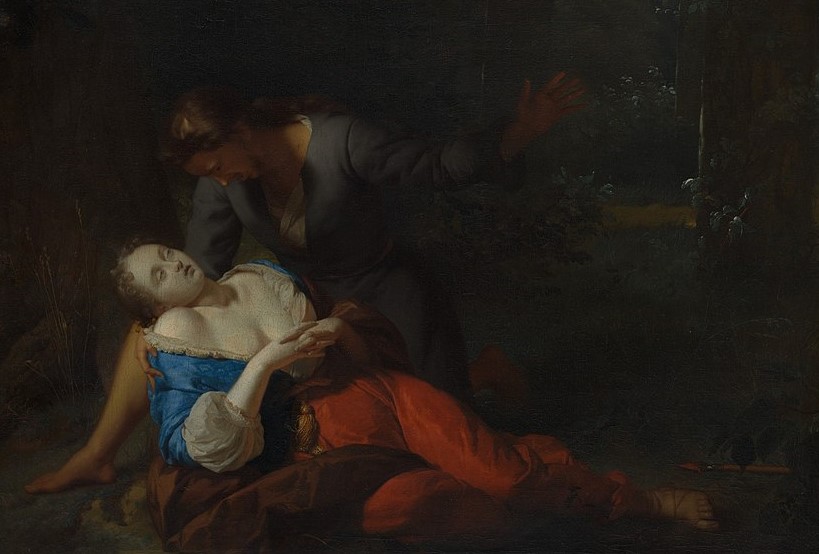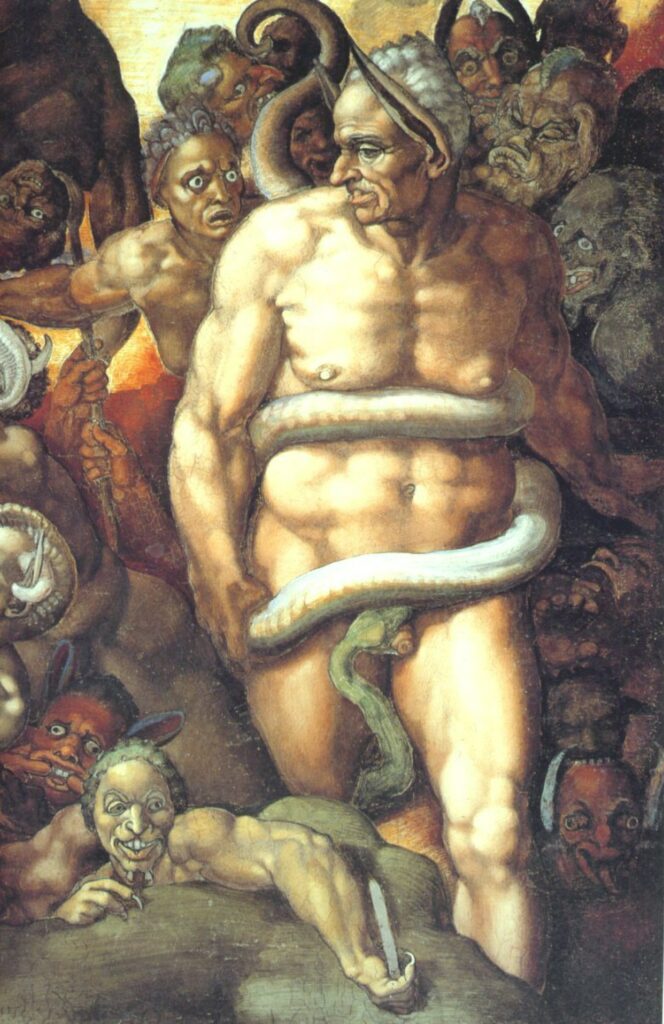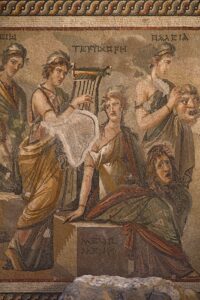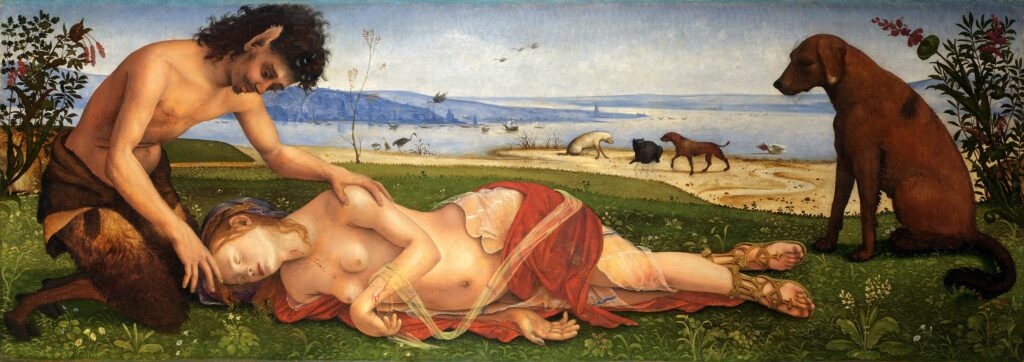
'Tis but a flesh wound!
Meeting 5: In which Homer attempts writing romance, Clio discusses Russian theater, and Calliope advises both to not quit their day jobs.
This episode of Mythology Pitch Meetings brought to you by CLAS-C 205 Classical Mythology.
Have you ever wondered how your favorite Classical Myths came to be? This is absolutely not how that happened, but it could have happened, maybe, and that’s the point of mythology. Shout-out to Ryan George, whose Pitch Meeting video series inspired the Muses.
CALLIOPE, MUSE OF EPIC POETRY: So you have a Classical Myth to pitch to me?
HOMER, UNCONTESTED G.O.A.T OF ANCIENT POETRY: Do I! This one is a love story!
CALLIOPE: Oh neat, I don’t think we’ve had one of those. Unless you count Paris and Helen of Troy, which we absolutely should not.
HOMER: The romantic genre is something new for me, but I think I’m going to be really good at it. This one is about a prince of Athens named Cephalus, and his wife Procris, and they are very much in love.
CALLIOPE: Ok, sounds romantic so far.
HOMER: Cephalus is so in love with Procris, in fact, that he gets super jealous. He figures, since he thinks she is the most beautiful woman in the world, every other man must too. Thus he decides to test her faithfulness.
CALLIOPE: Um, I feel like maybe we’re going in a bad direction…
HOMER: No, no, it’s cool. So Cephalus tells everyone that he is going on a journey, and then after the big send off, he sneaks back into the city disguised as a royal pageboy. Then in the guise of this pageboy, he tries to seduce Procris.
CALLIOPE: So he’s catfishing his own wife?

Don’t drag me into this.
HOMER: Now that you mention it, yes. Yes, he is. But Procris loves her husband, so at first she’s not picking up what Pageboy Cephalus is laying down. But then years go by, and Procris gets super lonely for Cephalus, and this pageboy really reminds her of her husband.
CALLIOPE: Because he is her husband.
HOMER: Right! And eventually, she surrenders to temptation, and she and the pageboy give each other…special hugs. And then Cephalus reveals himself, and is like, “You whore! You cheated on me!”
CALLIOPE: Did she? Can you cheat on your spouse with your spouse?
HOMER: That is the great question this myth seeks to answer.
CALLIOPE: That seems like a deeply stupid question to focus on.
HOMER: Just wait, it gets more complex. So Cephalus banishes Procris for being an adulterous whore…
CALLIOPE: Even though she has been with only her husband.
HOMER: Correct. And she flees to the court of King Minos on Crete. You know, the one who had the Minotaur. And he has a big problem.
CALLIOPE: He has a monstrous flesh-eating man-bull in his basement?

King Minos had 99 problems (including in this case donkey-ears and a serious snake issue), but a lack of weird ain’t one.
HOMER: Yes, but not that problem. He has groin problems, and Procris heals him.
CALLIOPE: Groin problems? Like he lifted something too heavy?
HOMER: No, he’s been cursed so that when he gets big-boy excited, he squirts out snakes, scorpions, and centipedes, and kills any woman he shares his bed with.
CALLIOPE: (blinks in horrified silence)
HOMER: Moving on. Minos is so pleased that Procris was able to heal him, that he provides her with a spear that never misses, a hound that always catches its prey, and a ship to return to Athens, since Procris still loves Cephalus and wants to win him back.
CALLIOPE: Is Procnis a huntress? Those seem like strange gifts for a princess.
CLIO, MUSE OF HISTORY (interrupting): I bet this is sort of a Chekhov’s gun situation. Chekhov was a famous playwright who advised that if a loaded gun is presented on stage in the first act, it had better go off in the third act. Man, it’s pretty awesome how we Muses invent the concept of the theater.

The invention of theater can be traced directly to the Muses’ need to hide their severed head collection.
HOMER: What’s a gun? Or a theater?
CLIO: Theater will replace you and other bards as the main entertainment in a couple of centuries. Guns…I’ll let Ares clue you in to those. He’s going to be really into them.
CALLIOPE: I bet it will be hard for Procris to convince Cephalus to take her back.
HOMER: Actually, it’s going to be super easy, barely an inconvenience. She decides the best way to address the situation is to show Cephalus how easy it is to make a mistake. Specifically, the mistake of having an affair with a pageboy who is actually your spouse. Procris disguises herself as a pageboy and pulls the same trick on Cephalus, who is still in love with his long-lost wife. And when Cephalus finally gives in and they give each other special hugs, Procris is like, “Surprise! I’m actually a woman, and your wife! Who’s the adulterous spouse now?”
CALLIOPE: Wait, so he didn’t realize she was a woman until after…
HOMER: Moving on. Cephalus has to admit fair is fair, and the two lovebirds are reconciled. But now, Procris is super jealous, because she realizes Cephalus is willing to have an affair, behind her back, if you will.
CALLIOPE: An affair with her.
HOMER: Yes. So one day Procris follows Cephalus into the woods when he goes hunting. Eventually he gets tired, so he lies down next to a stream in the breeze, and he says something like “Man, this feels good!” And Procris assumes he’s talking to his ex-lover, Eos, the Goddess of the Dawn, so she just loses it.

Somebody’s a morning person.
CALLIOPE: What is wrong with these people?
HOMER: And Procris takes off crashing through the woods. And Cephalus assumes it’s an animal, and throws Procris’s never-missing spear!
CALLIOPE: Wait, why does he have her spear?
HOMER: Because Procris gave it to him. What is she going to do with a spear? She’s a princesses, she doesn’t hunt.
CLIO: Chekhov’s Never-Missing-Spear pays off!
CALLIOPE: If you say so. How does the dog figure in?
HOMER: What dog?
CALLIOPE: The dog that Minos gave Procris, along with the spear. The one that always catches his prey.
HOMER: Um…it gives her corpse a really good sniffing.
CALLIOPE: You forgot about the dog, didn’t you.

Wishing he had followed the catfish’s lead, the dog regretted letting himself get dragged into an increasingly ridiculous situation.
HOMER: Maybe. Anyway, Procris dies and Cephalus is sad! The end! What a love story, amiright?
CALLIOPE: Wow. You are terrible at this. Nothing about that story is remotely romantic. As a couple, our two characters catfish each other, stalk each other, and have no trust in each other, nor should they, since both prove willing to sleep with other people, provided those other people sufficiently resemble their spouses. And then the guy straight up manslaughters the girl. Everything about this is terrible.
HOMER: Fine, I can take notes. What I’m hearing you say is…that you don’t want too much lying, or not trusting, and the couple can’t kill each other. Would it be more romantic if they kill other people and/or themselves?
CALLIOPE: That is not remotely correct.
HOMER: I’ll change the names too, to something more catchy. Maybe Pyramus and Thisbe!
CLIO: Oooo, that one’s going to be the inspiration for two famous plays by Shakespeare, a tragedy and a comedy! And the comedy is going to involve a man with an ass’s head! Like the Minotaur!
CALLIOPE: Sure, that might as well happen.
CLIO: Wait a tick! Shakespeare sounds like shakes-spear? Like Cephalus? And Shakespeare’s tragedy will inspire a book in the Twilight series, a mythological saga about romantic vampires, which will also include a book called Breaking Dawn. Like Cephalus again! What do you think? Is this a sign from the gods?
CALLIOPE: I think it’s a sign that you’re having a stroke.
HOMER: And I can make them teenagers!
CALLIOPE: How is this you helping?
Share on Instagram, or really wherever you want.
For more exploits of the Greek gods, and how their myths shaped Ancient Greek and modern societies, enroll in CLAS-C 205 Classical Mythology, coming up in Spring 2025, and earn GEC credits while you’re at it! Or look for CLAS-C 321 Classical Myth and Culture in Theater and Film, coming in Spring 2025 with no pre-reqs, and learn about the invention of theater. Can’t get enough of Ancient Greece and Rome? Earn a Classics Minor in just 15 credits!


